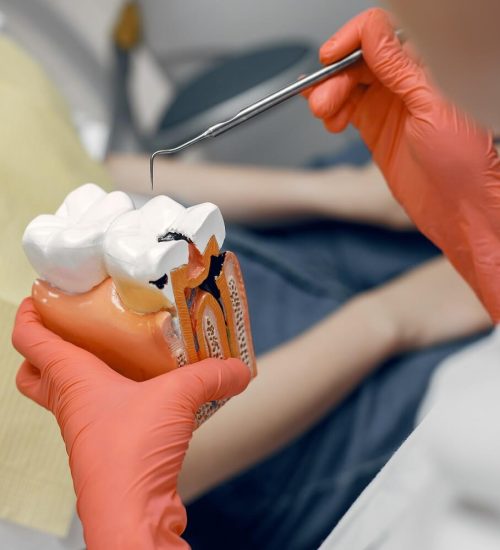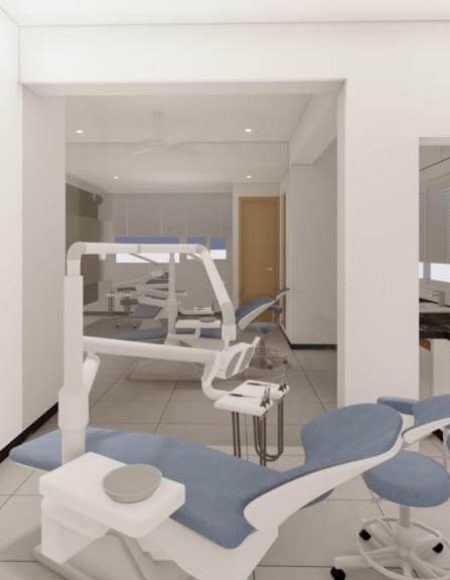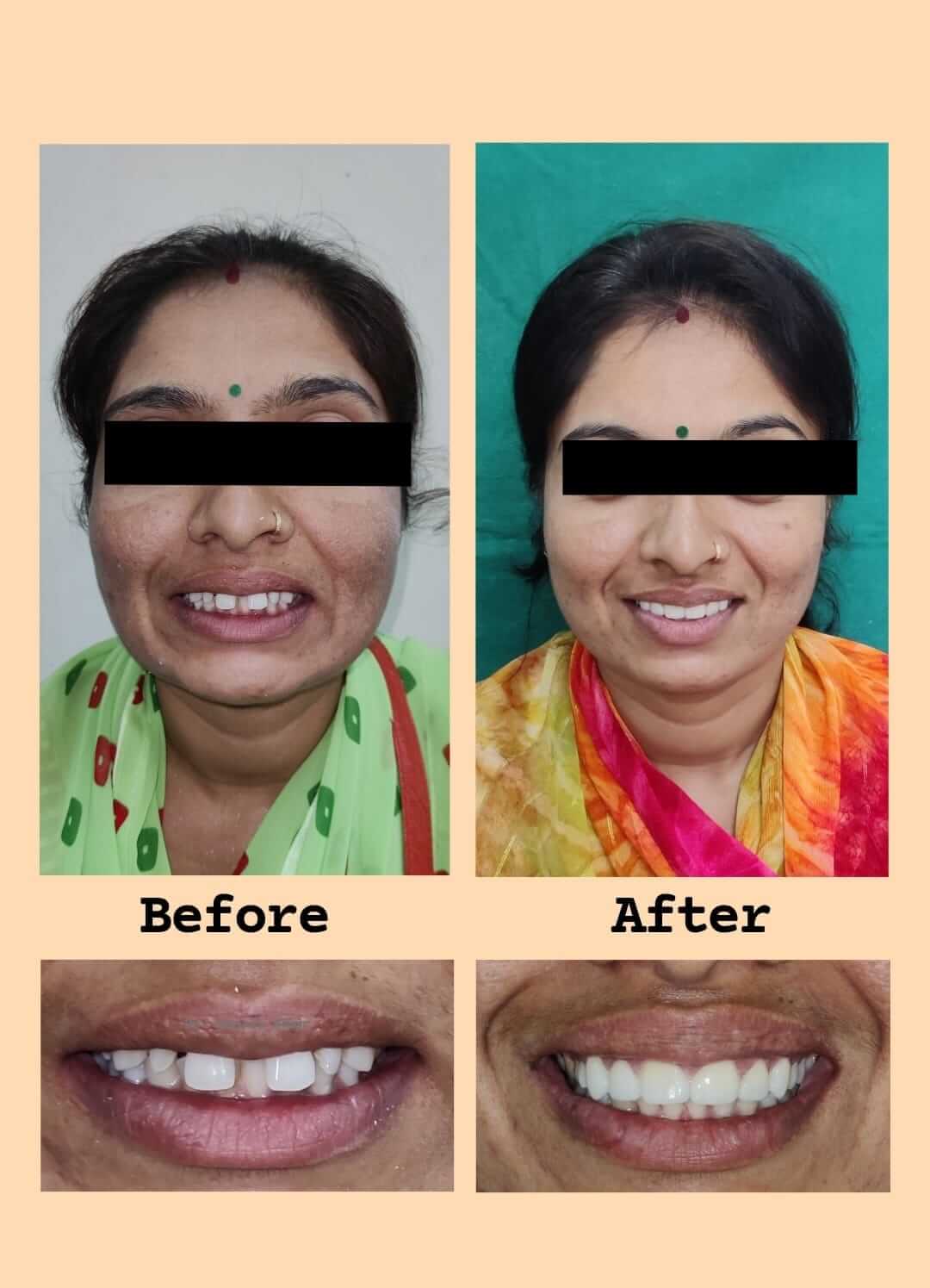Restore Your Smile and Confidence with Dental Implants and Fixed Crowns

Overview
Dental Implants & Fixed Crowns
Dental implants and fixed crowns are a popular and effective solution for replacing missing teeth. This dental procedure involves the placement of an artificial tooth root, made of biocompatible materials, into the jawbone. After the implant has fused with the jawbone, a custom-made dental crown is attached to the top of the implant, providing a natural-looking and durable replacement tooth. Dental implants and fixed crowns offer several benefits, such as improved speech and chewing function, enhanced appearance, and increased self-confidence. This treatment is ideal for individuals who have lost one or more teeth due to injury, decay, or periodontal disease.
In addition, dental implants and crowns can help to prevent further oral health problems by maintaining the structure of your jawbone and supporting adjacent teeth.
Benefits of Dental Implants & Fixed Crowns
Here are some Benefits of Dental Implants & Fixed Crowns
Improved Appearance
Dental implants and fixed crowns can improve the appearance of your smile by replacing missing or damaged teeth with a natural-looking restoration. This can enhance your confidence and self-esteem.
Improved oral Health
Dental implants and fixed crowns can improve your oral health by preventing bone loss and supporting healthy adjacent teeth. This can reduce the risk of further dental problems in the future.
Long-lasting Solution
Dental implants and fixed crowns are a durable and long-lasting solution for missing or damaged teeth. With proper care and maintenance, they can last for many years, making them a cost-effective option in the long run.
Improved Speech & Eating
Dental implants and fixed crowns can restore your ability to speak and eat properly, without discomfort or difficulty.
Implant Placement Procedure
Examination and Planning
Your dentist will conduct a thorough examination of your mouth, including x-rays and 3D scans, to determine if you are a good candidate for dental implants. They will also create a customized treatment plan based on your individual needs.
Tooth Extraction (if needed)
If the damaged tooth needs to be extracted, it will be done prior to the implant placement procedure.
Implant Placement
The dental implant, which is a small titanium screw, will be surgically placed into your jawbone to replace the missing tooth root.
Osseointegration
Over the next few months, the implant will integrate with the jawbone, fusing together to provide a strong and stable foundation for the dental crown.
Abutment Placement
Once the implant has fused with the jawbone, an abutment will be attached to the implant, which will serve as a connector between the implant and the dental crown.

It is important to note that the exact procedure may vary depending on individual circumstances, and your dentist will explain the process in detail before starting the treatment.
Crown Fabrication Process for Dental Implants
Crown fabrication is a process in which a custom-made tooth-shaped cap or crown is created to fit over a damaged or decayed tooth. The fabrication process involves taking impressions of the tooth to create a model, selecting the appropriate material for the crown, and shaping and polishing the final product. This restores the appearance and function of the damaged tooth, improving the overall oral health and smile of the patient.

Restoration Options for Dental Implants & Fixed Crowns
Restoration options can vary depending on the extent of the damage to the tooth. Here are some common restoration options:
- Dental crowns : These are used to restore damaged teeth or to replace missing teeth. They are designed to fit over the remaining tooth structure, providing a natural-looking appearance.
- Bridges : These are used to replace missing teeth. They consist of two or more dental crowns that are placed on the remaining teeth on either side of the gap, with a prosthetic tooth or teeth in between.
- Dentures : These are used to replace multiple missing teeth. They can be partial or full, depending on the number of teeth that need to be replaced.
- Dental implants : These are a popular option for replacing missing teeth. They involve surgically placing a titanium post into the jawbone, which then fuses with the bone to provide a stable base for a dental crown or bridge.
- Inlays and onlays : These are used to repair teeth that have large cavities or damage. They are custom-made to fit the shape of the damaged tooth and are typically made of porcelain or composite resin.
Your dentist can help determine which restoration option is best for your individual needs.
Enhanced Quality of Life with Dental Implants & Fixed Crowns
Improved quality of life can be achieved through dental treatments such as dental implants and fixed crowns, which can enhance the functionality of your teeth and provide aesthetic improvements to your smile. With these options, you can regain confidence and enjoy a better quality of life.
- Dental implants and fixed crowns can improve the quality of life for individuals who have lost one or more teeth.
- They provide a stable and durable replacement option that looks and functions like natural teeth.
- With improved biting and chewing ability, individuals can enjoy a wider range of foods, which can positively impact their overall health and nutrition.
- Dental implants also help preserve the surrounding bone structure, preventing further deterioration and maintaining facial aesthetics.


